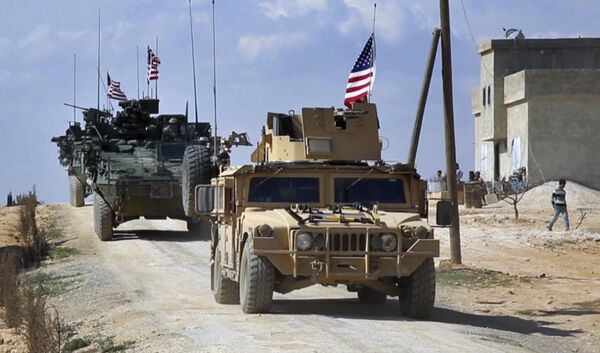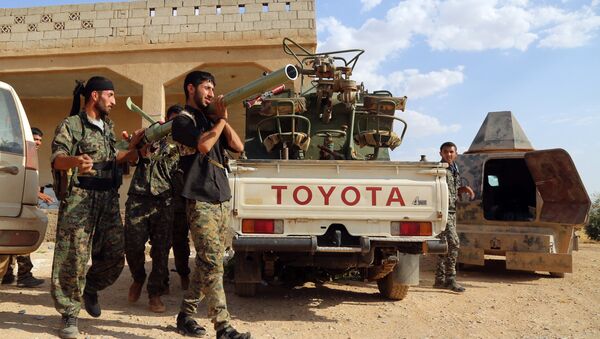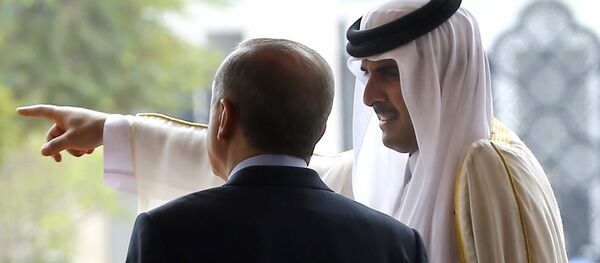The detailed map included troop counts and mentioned that military outposts were "usually hidden for security reasons, making it hard to be detected."
American troop movements in Syria are officially kept quiet for fear that Daesh may specifically target these positions for attack. For example, the Pentagon only confirmed that US troops were assisting the Syrian Democratic Forces (SDF) in retaking Raqqa from Daesh in July, more than a month into the siege.

Commenting on the matter, retired Turkish Major-General Armagan Kuloglu told Sputnik Turkey that the fight against Syria, if viewed from a certain angle, went beyond simply combating the terrorist threat.
"The goal here is more than just destroying the Daesh terrorist group; the [real] purpose is to play a major role in restructuring Syria," Kuloglu said referring, in particular, to the creation of a Kurdish state entity in northern Syria.
He also touched upon the US cooperation with the Kurdish Democratic Union Party (PYD) which is seen by Ankara as a terrorist organization and one of the main threats for Turkey.
"This is a threat for Turkey on the part of the structure which is being formed in northern Syria amid the fight against Dash. Adding to this is the United States, which supports the PYD and strengthens its position there. Upon completing the operation for the liberation of Raqqa the PDS will require payment for their work; it may pertain to the proclamation by the Kurds of its state formation which will pose a direct threat to Turkey," Kuloglu said.
He recalled that Turkey offered to cooperate with the US in the fight against Daesh during the liberation of Raqqa, but that Washington rejected this proposal, preferring to collaborate with the PYD.
"The US provides assistance to the PYD by supplying arms and munition to PYD fighters; in addition, the US established military bases in northern Syria, something that boosted the positions of the Kurds. Ankara does not want these territories to be turned into a safe haven for the structure, which will pose a threat to Turkey's national security in the future," Kuloglu added.
"In this vein, it's no surprise Turkey made public the location of [US] bases in Syria's north. This can contribute to a situation when a whole series of data on the anti-Daesh fight may finally fall into the hands of this terrorist organization. But this is not the fault of Turkey. These actions are provoked by Washington's refusal to cooperate with Turkey on this issue and the White House's support of the PYD," Kuloglu concluded.
The US backs these militia groups, but Turkey considers them to be terrorists associated with the Kurdish Workers' Party (PKK), which Ankara has waged 30 years of bitter war against.
The US support of the YPG and other Kurdish groups has repeatedly driven a wedge between it and its NATO ally Turkey. The US has consistently denied the connection between the YPG and the PKK, the latter of which Washington considers to be a terrorist organization.




